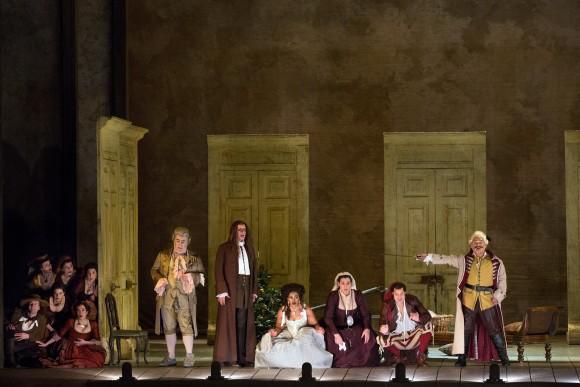NEW YORK—Gioachino Rossini’s 1816 comic opera “Il Barbiere di Siviglia” (“The Barber of Seville”) has returned to the Metropolitan Opera with a starry cast in Bartlett Sher’s production. It still meets Giuseppe Verdi’s opinion that the opera is “the finest opera buffa in existence.”
In 1825, “Il Barbiere di Siviglia” was the first opera sung in Italian in the United States, at the Park Theater in New York City. The opera, written when the composer was only 23 years old, was performed for the Metropolitan Opera’s very first season (1883–84).

A scene from "Il Barbiere di Siviglia," at the Metropolitan Opera. Marty Sohl/Metropolitan Opera






